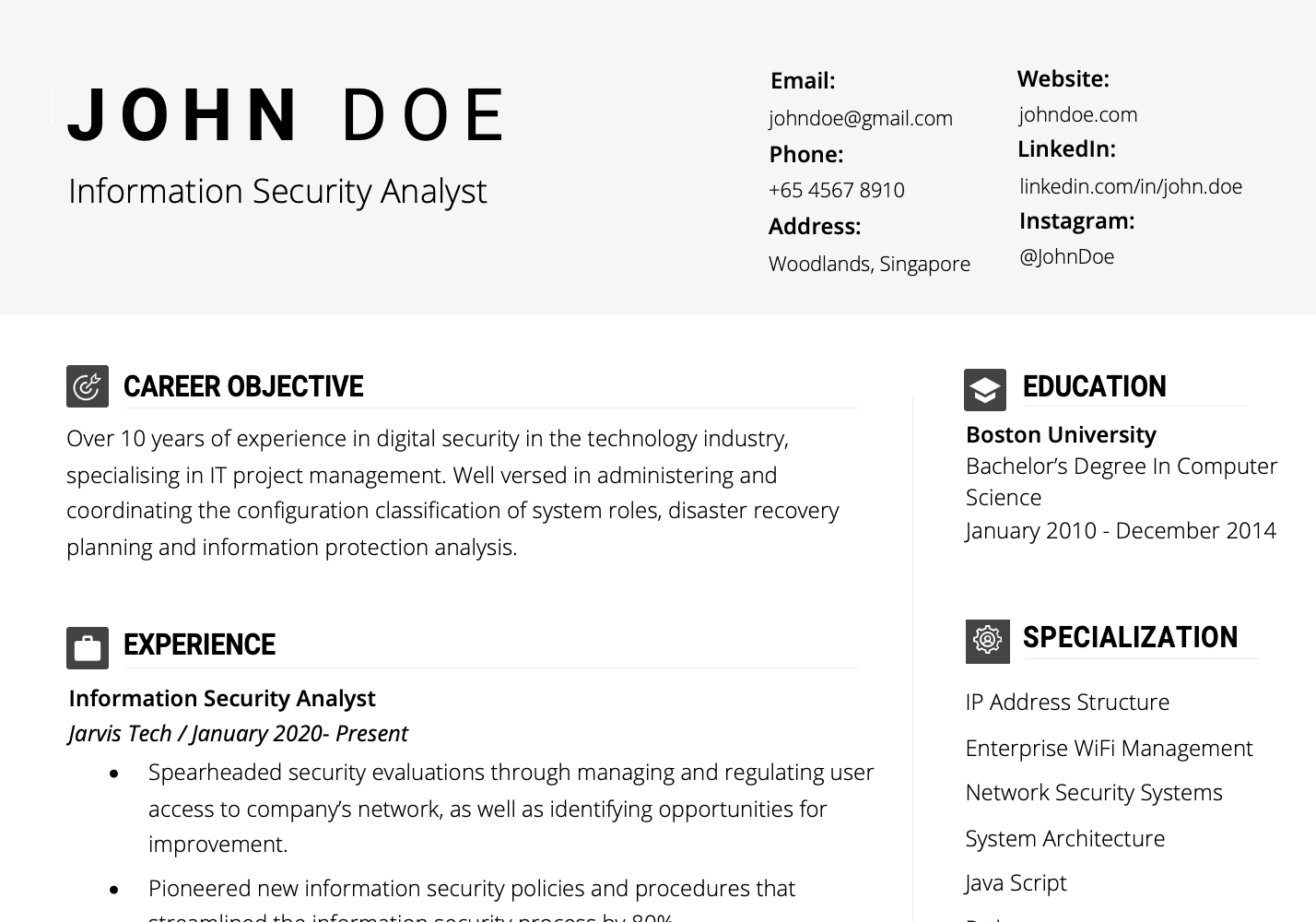
As an information security analyst, you know exactly how to protect businesses from online threats, but how good are you at writing an outstanding resume? You’re in luck, our guide is designed to help you write (possibly) the best Information Security Analyst resume that you can!

Keep all of the information on one page for a well-received resume. If your career spans further than a decade, you can get away with a two-page resume. Keep in mind that resumes should be concise and targeted.
This is the follow of a resume you should follow:
As for formatting, these are the basics you need to know:
An overview of your professional background, qualifications and drive behind growing your career in this specific industry. Provide a glimpse into why you love what you do, or why you want to grow and develop skills further.
Example: Over 10 years of experience in digital security in the technology industry, specialising in IT project management. Well-versed in administering and coordinating the configuration classification of system roles, disaster recovery planning and information protection analysis.
When drafting your work experience portion of your resume, keep two things in mind: bullet points and specific experience.
#1 Bullet Points
#2 Specific Experience
1) The Job Description: Analyse Indicators of Compromise found in Mediacorp networks with security teams to assess the likelihood of targeted attacks.
2) Your Experience: Successfully spearheaded a team of 15 in Analyse Indicators of Compromise found in Mediacorp networks having assessed 70% of possible targeted attacks.
Pro tip: Exhibit your experience in a reverse-chronological order. It's one of the most popular and widely used methods for listing your professional experience. It's much easier for hiring managers to see your most up-to-date work.
Even without any work experiences you can still craft a great resume as someone starting their career journey, after all everyone has to start from somewhere. Here’s what you can include instead of full-time work experiences.
Action words in resumes are adjectives that are used to describe achievements and experiences. It's a terrific method to get the attention of the hiring manager and highlight your accomplishments.
Words like these are great action words to consider when writing your resume:
Since a resume is short and to the point, here's what to include and what to leave out.
In a separate piece of paper you’ll want to include the following to boost your chances at being selected for an interview. If you have a website with the following showcased, feel free to include your site under the contact information section of your resume.
If you’ve been meaning to increase your value as an information security analyst, there are a handful of certificates you should look into regardless if you’re starting out or a veteran looking to sharpen your skills. Many are offered solely online with great time flexibility to work with your schedule and learning pace. Here are some certificates worth considering:
Awards are a great reminder of the achievements you’ve accomplished for your company or with your industry.
A cover letter is a terrific complement to any resume because it allows you to go into greater detail about why you're the best fit for the job. Instead of sending out generic resumes to each potential employer with an open position, a cover letter demonstrates your want to work for the company you're applying to. The structure of your cover letter matters as much as the content itself.
Make sure the font size and spacing are as easily readable as they are appealing to the eye. When describing your successes and experiences, utilise action words to emphasise your relevant talents to the position you're wanting to be recruited for.
Need a few more details? Check out our in-depth guides on writing a resume, CV and cover letter. All guides are suitable for any profession with tips for careers across the board.